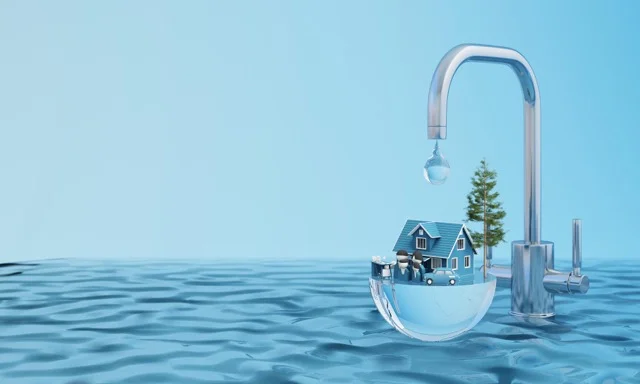Things about Reclaim Waste
Things about Reclaim Waste
Blog Article
5 Simple Techniques For Reclaim Waste
Table of ContentsReclaim Waste Can Be Fun For AnyoneTop Guidelines Of Reclaim WasteReclaim Waste Things To Know Before You BuyGetting My Reclaim Waste To WorkIndicators on Reclaim Waste You Should Know
Discover the kinds, incidents, and types of fluid waste. Domestic sewer waste refers to the waste and products from a residential sewage-disposal tank. This sort of waste is created by people in homes, colleges, and other structures. This only consists of sewage-disposal tanks that have a drainpipe field. The correct monitoring and disposal of residential sewage waste call for fluid waste to be moved to a sewer treatment plant where the proper methods and devices are put on purify and take care of waste.
Industrial waste typically consists of prospective risks, such as combustible products or a blend of liquid and solid waste products, and needs a more advanced and comprehensive disposal procedure. The disposal of commercial waste generally involves the filtration of waste prior to transport to ensure risk-free and appropriate disposal. Hazardous waste is developed from byproducts and overflow of commercial procedures and production.
This type of waste can not make use of the same sewage monitoring transportation or processes as septic or industrial fluids. The hazardous waste management process needs the examination and screening of liquid waste prior to it undertakes the disposal process (industrial wastewater treatment). Drainage waste is the fluid waste that originates from overflow and excess stormwater in extremely populated locations or cities
Overflow waste can cause contamination and flooding otherwise taken care of properly. Discover more regarding drain cleansing and waste monitoring. Making certain correct waste management can stop calamities and reduce environmental harm. Both individuals in residential settings and professionals in business or manufacturing sectors can profit from recognizing the procedures and laws of fluid waste administration.
Reclaim Waste Things To Know Before You Get This
Get in touch with PROS Providers today to find out about our waste administration and disposal services and the appropriate ways to look after the liquid waste you generate.
(https://www.huntingnet.com/forum/members/reclaimwaste1.html)Do you understand what happens to your water when you disengage, purge the commode or drain the washing maker? No? Well, it's worth understanding. This so-called 'wastewater' is not just a vital source but, after treatment, will certainly be launched to our land, waterways or the sea. Made use of water from bathrooms, showers, bathrooms, cooking area sinks, washings and industrial procedures is called wastewater.

water utilized to cool equipment or clean plant and tools). Stormwater, a form of wastewater, is overflow that streams from agricultural and city areas such as roofs, parks, gardens, roadways, courses and rain gutters right into stormwater drains pipes, after rain. Stormwater flows neglected directly to neighborhood creeks or rivers, eventually reaching the sea.
The Best Strategy To Use For Reclaim Waste
In Queensland, a lot of wastewater is treated at sewer treatment plants. Wastewater is delivered from residential or industrial sites via a system of sewers and pump stations, known as sewerage reticulation, to a sewage treatment plant.
The Department of Natural Resources encourages city governments regarding managing, operating and maintaining sewage systems and treatment plants. In unsewered areas, regional governments may need homeowners to install individual or home sewage therapy systems to treat domestic wastewater from commodes, cooking areas, washrooms and laundries. The Department of Natural Resources authorises making use of family systems when they are verified to be effective.
Most stormwater receives no therapy. In some new neighborhoods, treatment of some stormwater to get rid of litter, sand and gravel has actually started making use of gross toxin traps. Wastewater treatment takes place in four phases: Gets rid of solid issue. Larger solids, such as plastics and other things wrongly released to drains, are removed when wastewater check this site out is passed through screens.
Wastewater then flows into huge storage tanks where solids settle and are eliminated as sludge. Oil and scum are skimmed from the surface area. Uses small living microorganisms called micro-organisms to damage down and remove continuing to be liquified wastes and great fragments. Micro-organisms and wastes are included in the sludge. Eliminates nitrogen and phosphorus nutrients that could create algal blooms in our rivers and intimidate marine life.
Our Reclaim Waste Ideas
Nutrient removal is not offered in all sewer therapy plants due to the fact that it calls for expensive specialised devices. It is becoming much more typical in Queensland. Clear fluid effluent generated after therapy might still include disease-causing micro-organisms. If this effluent is released into waterways such as rivers or the sea, the micro-organisms will at some point pass away out.

Most wastewater streams right into the sewage system. Under the Act, local governments carry out approvals and licences for ecologically appropriate tasks (Ages) entailing wastewater launches that could have a local impact.
Fascination About Reclaim Waste
Otherwise, examples are considered laboratory analysis. Frequently lots of examinations are required to establish the degrees of each of the different contaminants such as oils, heavy metals and pesticides in water. Tracking gives factual info about water high quality and can verify that permit conditions are being satisfied. The details gotten through tracking gives the basis for making water quality decisions.
Report this page